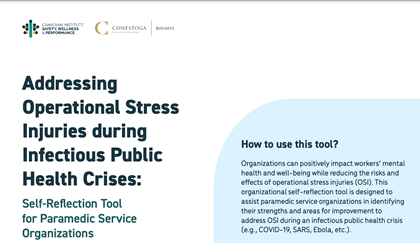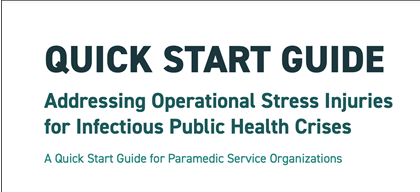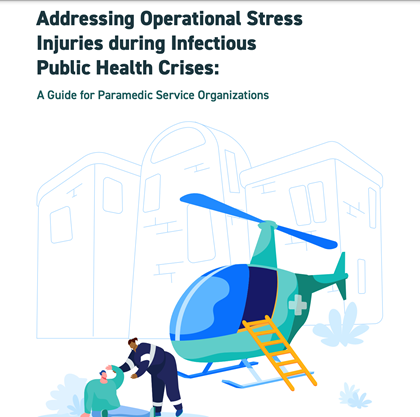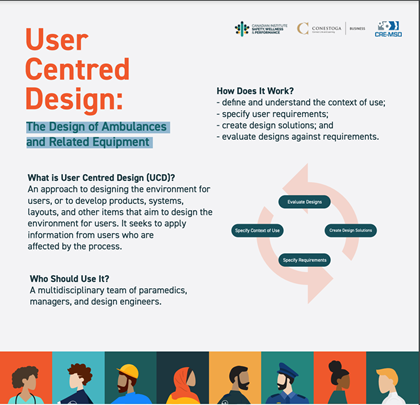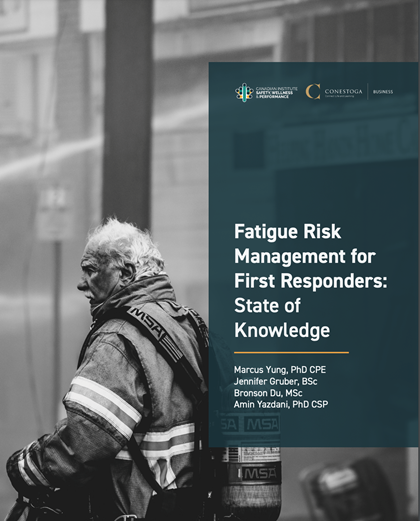Archive
-
2025
-
2024
-
2023
-
2022
-
2021
-
2020
-
2019
-
2018
-
2016
-
2013
Category
Addressing Operational Stress Injuries during Infectious Public Health Crises: Self-Refection Tool for Paramedic Service Organizations
Organizations can positively impact workers’ mental health and well-being while reducing the risks and effects of operational stress injuries (OSI). This organizational self-refection tool is designed to assist paramedic service organizations in identifying their strengths and areas for improvement to address OSI during an infectious public health crisis (e.g., COVID-19, SARS, Ebola, etc.).
Quick start guide: Addressing Operational Stress Injuries for Infectious Public Health Crises
This Quick Start Guide outlines recommendations based on Ten Organizational Elements for paramedic service organizations to address OSI during infectious public health crises such as the COVID-19 pandemic.
Addressing Operational Stress Injuries during Infectious Public Health Crises: A Guide for Paramedic Service Organizations
This Guideline provides a series of evidence-informed recommendations outlined as Ten Organizational Elements, which lay the foundation for organizational resiliency during an infectious public health crisis.
User Centred Design: The Design of Ambulances and Related Equipment
What is User Centred Design (UCD)?
An approach to designing the environment for users, or to develop products, systems, layouts, and other items that aim to design the environment for users. It seeks to apply information from users who are affected by the process.
Fatigue Risk Management for First Responders: State of Knowledge
Our objective is to develop a consensus-based, evidence-informed national Standard on First Responder Workplace Fatigue Risk Management that will provide an approach to systematically prevent and manage workplace fatigue by addressing it in a strategic, coordinated approach, and as part of a broad organizational management framework.


